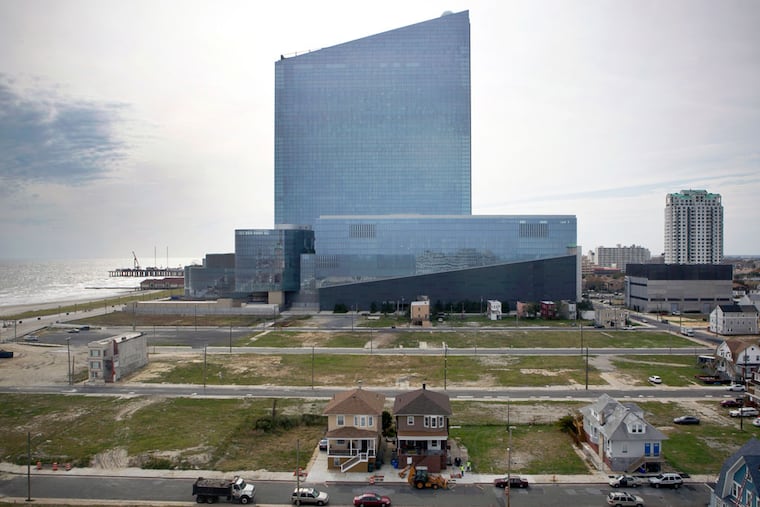Revel bidder asks court to reduce selling price
ATLANTIC CITY - The Florida developer in line to purchase the former Revel Casino Hotel says in court filings that the auction for the property was not run fairly and he wants an $8 million discount.

ATLANTIC CITY - The Florida developer in line to purchase the former Revel Casino Hotel says in court filings that the auction for the property was not run fairly and he wants an $8 million discount.
Lawyers for Glenn Straub said in a filing Wednesday that the property should be sold for $87 million, not the $95.4 million runner-up bid his Polo North Country Club put in at auction.
Toronto-based Brookfield Asset Management won the auction for $110 million but backed out of the deal when it could not resolve a dispute over debt from the casino's costly power plant.
Straub says in the filing that he believes the auction was unfair because his side was not fully notified of the other bidder. He says he would not have bid more than his original $90 million "stalking horse" bid that set the floor price for the auction if he knew about what he described as "significant and numerous improprieties" in the bidding process.
He also wants a federal judge to deduct a $3 million breakup fee he was promised because Revel is keeping Brookfield's $11 million deposit.
The filing says Revel should be put up for auction again and he should get his deposit back if the judge finds that "the auction process was deficient to the extent the auction significantly and adversely affected" Revel's ability to receive the highest bid.
The judge is scheduled to consider Revel's plans to sell the casino to Straub on Jan. 5.
Straub has proposed several uses for the former casino resort. One was a so-called genius academy at which the world's best minds would look for solutions to society's problems.
The $2.4 billion Revel opened in April 2012 with high hopes of helping turn around Atlantic City's struggling casino market. But it never turned a profit, filed for bankruptcy twice, and closed Sept. 2.
It was one of four Atlantic City casinos to shut down this year amid growing competition in the saturated Northeastern U.S. market. A fifth, the Trump Tal Mahal, averted being closed this year after investor Carl Icahn put up $20 million to keep it running through bankruptcy.